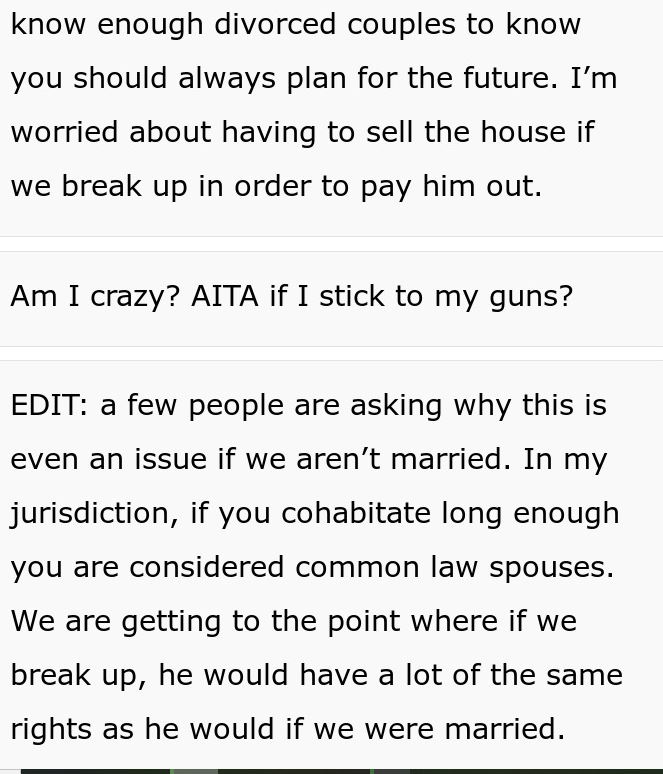When it comes to money or property, all bets are off. The nicest people, the best couples, and even close-knit family members can end up in a screaming match over who gets a share in the estate. The only problem is that these kinds of issues aren’t easy to solve at all.
In this bizarre situation, a woman found herself caught between ruining her relationship by standing up to her boyfriend or giving in to his entitled demands for equity in her house. He felt that he deserved it, all just because he did a few chores.
More info: Reddit
Disputes about money and property can be tough to solve between an unmarried couple, especially if the laws aren’t so clear about what to do
The Complexity of Financial Disputes in Relationships
Money and property disputes can be particularly challenging to resolve, especially between unmarried couples. Without clear legal guidelines, these situations can lead to intense emotional and financial stress.
In this case, the woman’s boyfriend felt entitled to equity in her house simply because he did some chores. This sense of entitlement can complicate relationships and lead to difficult decisions about standing up for oneself versus maintaining the relationship.
Navigating these disputes often requires clear communication, legal advice, and sometimes, difficult choices about what is truly fair and just.

The woman had been living in a townhouse that she bought seven years ago, and once she started dating her boyfriend, she let him move in with her



Despite paying a lower rent and covering less than 20% of the household expenses, when the woman decided to sell her townhouse, the man demanded equity in it


The woman explained that since they both had signed a cohabitation agreement before moving in, she was worried about whether he actually had rights to her property. When her boyfriend moved in with her, he saved significantly on rent and utilities. He even quit the part-time job he had been working at while renting his previous place. In exchange, he took on a few more household responsibilities and did a little more of the cooking.
Despite this, the OP still paid for almost everything and handled about 40% of the cooking and household chores. It’s clear that the division of labor in the relationship was far from equal. Research indicates that although 22% of men try to shoulder the burden of housework, this role primarily falls on women, who are now also expected to contribute financially.
Although the woman seemed content with her situation, she tried to safeguard her assets by asking her boyfriend to sign a cohabitation agreement. By signing it, he agreed that she would retain control of the house and that she wouldn’t owe him any monetary compensation if they broke up.
Legal experts say that cohabitation agreements are useful to protect the interests of both partners. They address issues like property ownership, financial responsibilities, the division of assets in the event of a breakup, and any other important matters the couple wishes to clarify. This can be extremely useful in case of any dispute between them later.

Things seemed to be going well between the couple until the woman wanted to sell her townhouse. Although she had bought it herself and the mortgage was in her name, her boyfriend expected equity in it just because he did 60% of the household chores. This shocked the woman, who told folks that “he [hadn’t] paid any ‘rent’ or ‘mortgage’ of any kind since spring.”
She worried that their cohabitation agreement and their three-year relationship might mean he had rights to her property. In her jurisdiction, if people live together long enough, they can be considered ‘common law spouses’ and have rights similar to married couples.
Lawyers say that even with a cohabitation agreement, if the property is owned in one person’s name, that person has complete rights to it. The other partner can only claim it in certain circumstances, such as having evidence of an oral or written agreement about the property or proving financial contribution toward it.
Based on this, the law seems to favor the OP. Since she owned the property and had everything in her name, her boyfriend couldn’t claim equity. It’s clear that he got a bit greedy and expected way too much for doing way too little.
How do you think the woman should confront her partner over his unreasonable demand?
People sided with the poster, saying it was a major red flag for the guy to ask for equity despite not contributing nearly enough.

